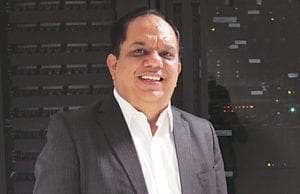The One Nation, One Tax reform is set to be a challenge for Indian enterprises as they prepare to customize their internal systems with respect to different factors such as business process localization, tax computation and supply chain management. To understand how Indian enterprises are preparing for the GST era, Abhishek Raval spoke to CIOs across different verticals. Here is a brief snapshot of their perspective
Vijay Sethi, CIO & VP- IS, HeroMotoCorp
Our GST transition began in August 2016. It’s not only helping us but also our partners in ensuring that
Sumit Singh, CIO, Wockhardt Hospitals
We have been talking to and planning for GST with various stakeholders for a while now. We have done 
Accordingly, IT systems, internal or vendor supported are going through the necessary enhancements. I expect we should be fine from day one of GST coming in to effect.
Dheeraj Sinha, Group CIO, JSW
We have setup a GST business advisory and decision making Apex team. This is supported by individual business owners which in turn are supported by Tax and GST Compliance Advisory teams to help the business in taking the right decisions. Translations of directions in the systems is then a job of the IT teams which report back to the business teams for the project. This is one of the highly complex projects and touches the critical Record to Report, procure to Pay and Order to Cash cycles. It impacts all vendor, customer, material SKUs and there are significant changes in key processes in the above areas.
The Technology team is working along with the business and running it as a programme. The project has been on for more than 5 months now. The impact analysis of the new Tax regime, the modifications needed in existing codes, the new changes brought by GST are documented and system readiness is being done for the same. Impact analysis on existing solutions and custom codes has also been done and rectifications are under way. While there are a still a lot of unknowns, the configuration work is almost ready and cut-over scenarios are under discussions.
As part of the preparations, mock environment for GST compliance has been created where all the testings are being done. The vendor master, customer master, pricing procedures, pricing reviews are all tasks that are at various stages of readiness. We will be reviewing our progress around the end of May to enable us to take business calls wherever needed and pending.
Jayantha Prabhu, Group CIO, Essar Group
We are working on customizing SAP as per the GST requirement. On the IT side, we are ready. All the 8 
Pratap Gharge, Executive President & CIO, Bajaj Electricals Ltd

Girish Rao, Head – IT and Business Analytics, Marico

Krishna Kant Mishra, CIO, Everest Industries Ltd
We are still in the process of finalizing our depot structure because the biggest impact will happen on our distribution network. Currently, we are having about forty depots in the country. Going forward, the 
We need to access the GSTN network through some GSTN Service Provider (GSP), also known as a Suvidha provider. The Govt has certified 34 GSPs who will be providing us services and it is mandatory for an enterprise to access the GSTN through a GSP, who has certain standard APIs provided by the GSTN. There will also be companies, known as Application Service Providers (ASP) , who will provide analytics and give us solution to file returns.
Vipul Anand, Group CIO, JSPL
GST will have a huge impact on our business. We have already completed an impact analysis of GST 
While we are confident to be ready for GST across all our business locations , our larger worry is to make sure that our external stakeholders are ready and the infrastructure including portals and systems stay integrated in time as per GST needs.
Anil Goel, Chief Technology Officer, OYO Rooms
In preparation of GST, we are making investments in increasing flexibility of our tax systems so that we can implement different tax rate slabs for different sources of revenue i.e, Room rent, meals etc. at various jurisdiction levels i.e., Central, State and City, by merely changing the configuration.



